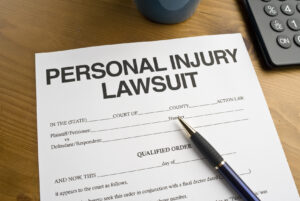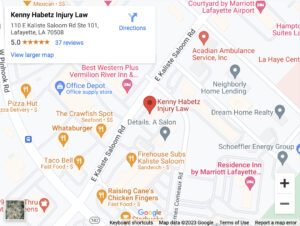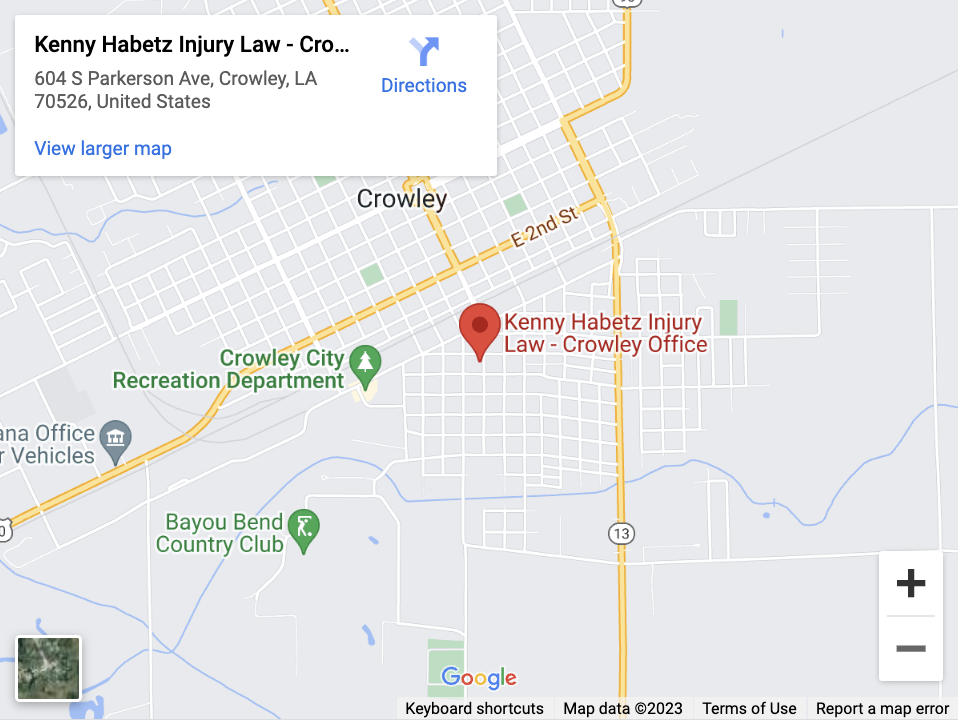
Louisiana is a tort or “fault” state for personal injury claims, such as those arising from a car or workplace accident. Therefore, you must prove the other party caused your injury to hold the party financially liable for damages. Causation is the third element of a negligence claim and one of the most challenging elements to prove to win a personal injury case.
Causation and Louisiana Personal Injury Cases
In most personal injury cases, the injured party must prove the elements of negligence. Negligence is failing to act with reasonable care to avoid causing injury or harm to another person. The elements of a negligence case are:
- Duty of Care
- Breach of Duty
- Causation
- Damages
First, you must prove that a party owed you a legal duty of care. Then, you must prove that the party’s conduct fell short of the level of care required for the specific situation (breach of duty). Finally, you must link the person’s conduct with the cause of your injury (causation) and your damages.
Proving causation requires you to have evidence establishing direct cause and proximate cause. If you cannot prove both elements of cause, a jury might not find an at-fault party liable for damages.
How Do You Prove Legal Causation for a Lafayette Personal Injury Case?
Louisiana requires you to prove your case by a preponderance of the evidence. Therefore, you must prove that there is a greater than 50% chance the other party caused your injury by proving direct and proximate cause.
Proving Direct Cause for a Louisiana Personal Injury Claim
Direct cause is often easier to prove than proximate cause. Actual cause or cause in fact is the reason why something happens. Jurors usually use the “but for” test to determine direct cause.
The “but for” test asks, had it not been for “this” would “that” have occurred? In other words, had it not been for the party’s conduct, would you have been injured?
An example could be a property owner failing to fill a large hole in the ground. The owner does not warn people about the hole or place anything around the hole to keep people from falling. You legally enter the property and step into the hole, which causes you to fall and break your leg.
The direct cause is stepping into the hole. You would not have broken your leg if it had not been for the hole.
Proving Proximate Cause for a Louisiana Personal Injury Claim
Proximate cause deals with the relationship between specific circumstances and an injury. You must prove that the at-fault party could reasonably foresee or predict that their conduct could cause someone to be injured. Generally, a person is not liable for damages if they could not reasonably foresee that the conduct would put others at risk or were not in control of the circumstances that caused the injury.
In our example above, the property owner was in control of their land. A reasonable person could foresee that people walking around on the property could be injured if they stepped into a large hole.
Examples of Evidence Used To Prove Causation for a Lafayette Personal Injury Claim
Evidence in a personal injury claim can include testimony, physical evidence, and documentation. The type of evidence in a case depends on the specific circumstances of the case.
Evidence used to prove causation for a personal injury can include:
- Physical evidence from the accident scene
- Videos and photographs of the accident scene or the person being injured
- Statements from the parties involved in the case
- Medical records proving injuries
- Photographs of the person’s injuries
- Testimony from eyewitnesses and expert witnesses
- Copies of police reports and accident reports
If you sustain an injury or are involved in an accident, try to collect evidence from the accident scene. Make a video and take photographs with your cell phone. Ask anyone who witnessed the accident to give you their name and contact numbers.
A personal injury lawyer conducts a thorough investigation to gather evidence proving causation. However, the evidence you collect at the time of your injury can be very helpful in proving your case.
What Damages Can I Receive for a Personal Injury Claim?
If you prove your case, you can receive reimbursement for your economic damages or financial losses. These damages include:
- Medical bills
- Lost wages
- Out-of-pocket expense
- Personal care
- Rehabilitative therapies
- Property damage
You can also receive compensation for non-economic damages. These damages compensate you for the suffering caused by the party’s negligence. Damages you could receive include:
- Emotional distress
- Physical discomfort
- Scarring and disfigurement
- Mental anguish
- Loss of enjoyment of life
- Impairments and disabilities
- Diminished quality of life
You must file a timely claim to receive compensation for a personal injury claim. Louisiana has a short statute of limitations for filing a personal injury lawsuit.
Typically, there is a one-year deadline for filing personal injury cases. If you file your lawsuit after the deadline, the court will likely dismiss your case.
There are very few exceptions, and assuming an exception applies in your case is unwise. Instead, it is best to contact our law firm after an injury or accident as soon as possible to discuss your case with a personal injury attorney.
Call for a Free Consultation With Our Lafayette Personal Injury Lawyer
Proving causation can be challenging. You must have sufficient evidence to prove the other party caused your injury. If not, you do not receive any money for your injuries and damages.
Our legal team at Habetz Injury Law has extensive experience investigating personal injury claims. We gather evidence to build a solid case for maximum compensation. Call now for your free case evaluation with our experienced Lafayette personal injury attorney.


